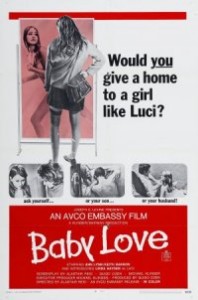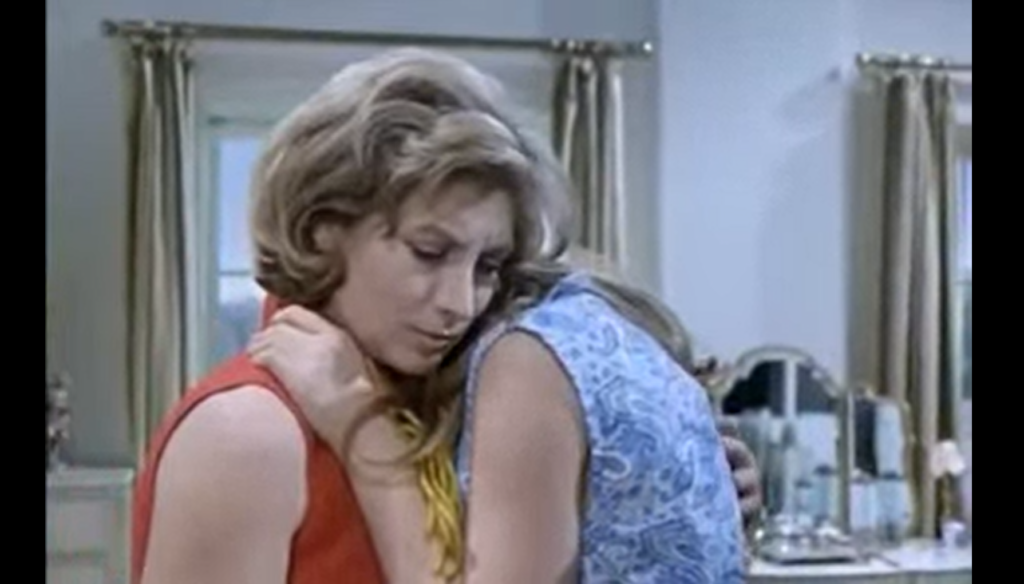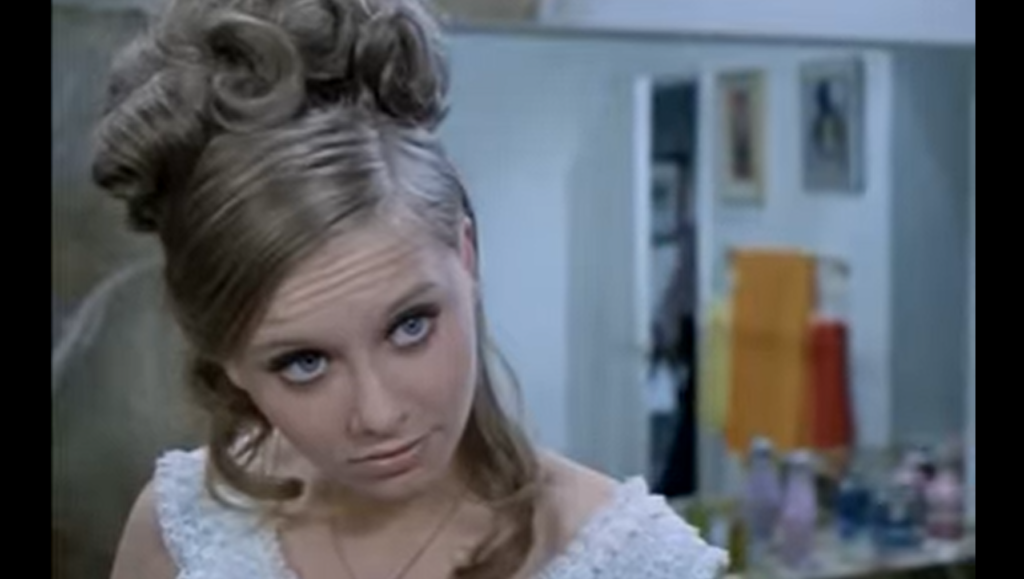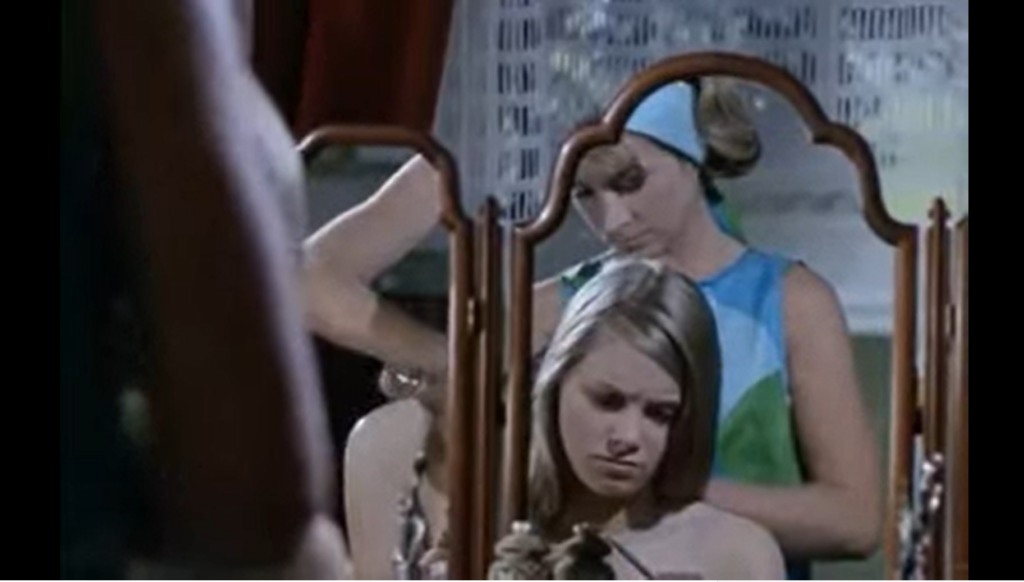“The poor bitch, she had nothing — no one to turn to, only me.”
|

Synopsis:
After her mother (Diana Dors) commits suicide, 15-year-old Luci (Linda Hayden) goes to live with her mother’s former lover (Keith Barron) and his family.
|
|
Genres, Themes, Actors, and Directors:
- Catalysts
- Femmes Fatales
- Lesbianism
Response to Peary’s Review:
Peary’s review of this rarely seen British film focuses on the “mischievous, manipulative” nature of its lead character (nubile Linda Hayden), whose very presence turns her new family “against one another” and wrecks their “once happy home.” Indeed, he refers to it as a “weird little potboiler”, and calls it “fascinating in a perverse sort of way”. My take is different, however: I was impressed by director Alistair Reid’s attempt to show the history behind Luci’s behavior, with flashbacks and nightmares clearly revealing the source of her confusion and manipulation. She comes across as a sympathetic victim of a dysfunctional home rather than a ruthless vamp; this is a girl who has learned to exploit her body simply because that’s all she’s ever seen. The most interesting subplot by far focuses on the sexual awakening of Barron’s wife (Ann Lynn), who finds herself enormously attracted to Luci. Their scenes together are handled with grace, and could easily have carried the entire film. Unfortunately, the movie turns unnaturally melodramatic and contrived by the final scenes; as one IMDb contributor writes, “the ending is an anti-climax and suggests a loss of interest in the story”.
Redeeming Qualities and Moments:
- Ann Lynn’s performance as a woman coming to terms with her lesbian attractions

- Linda Hayden as the sexy young catalyst who turns an entire household upside down

- Creative direction

Must See?
No, but it’s a good little film worth seeking out.
Links:
|
One thought on “Baby Love (1968)”
First viewing. No, not a must but (as stated) not a waste if it’s happened upon. In its depiction of a seductive influence on a household, it seems inspired by (a Peary “additional’) Pasolini’s “Teorema’ (released the same year, but which came first?…). I also feel that the main character is a victim — she is what she learned. However, on a first viewing, I’m not sure about the lesbianism angle involving the wife of Luci’s mother’s ex-lover. To me, she doesn’t seem to be in a great marriage and seems nostalgic about a former state of motherhood — one she wants to re-claim. In one bed scene, Luci is actually sucking her own thumb while touching what she thinks of as her dead mother’s breast. If anything, what makes the mother surrogate hesitate is that her comfort could mistakenly be perceived as lesbian attraction. I could be wrong, of course. Ultimately, it’s not an interesting enough film to see again to be sure. I also agree that the ending is abrupt and indicates, if not a lack of interest, an inability to resolve.